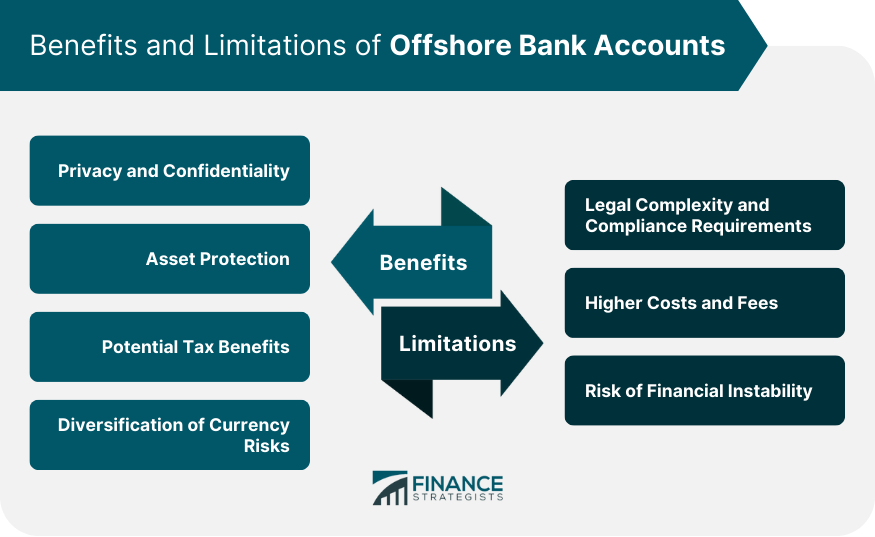Offshore Company Formation: Building Your Service Beyond Boundaries
Offshore Company Formation: Building Your Service Beyond Boundaries
Blog Article
Recognizing the Lawful Implications of Offshore Firm Formation

Lawful Framework for Offshore Companies
When establishing an overseas firm, comprehending the lawful structure governing its formation and operation is vital for conformity and danger management. Offshore companies operate under particular legislations and guidelines that vary from those of onshore entities. The lawful structure for overseas firms generally includes provisions for company enrollment, investor needs, supervisor duties, and tax obligation commitments.
Business enrollment involves submitting the necessary paperwork to the proper regulative authorities in the selected territory. This process commonly needs in-depth info regarding the firm's framework, investors, and designated activities. Additionally, overseas business have to stick to certain shareholder requirements, such as keeping a register of investors and keeping this info as much as date.
Supervisors of overseas companies have fiduciary duties to act in the most effective interests of the firm and its shareholders. They are responsible for supervising the business's operations, ensuring compliance with all appropriate regulations, and handling dangers successfully. Comprehending the tax commitments of an offshore firm is necessary to prevent any kind of prospective lawful problems. By sticking to the legal structure governing overseas companies, organizations can operate with self-confidence while minimizing lawful risks.


Tax Obligation Ramifications and Rules
Recognizing the tax obligation implications and guidelines is paramount when thinking about the facility and procedure of an offshore business. Offshore business are often subject to positive tax routines, supplying reduced or no tax obligation prices on foreign-earned revenue.
Tax regulations for overseas business differ substantially across jurisdictions, and it is critical to look for professional advice to recognize the particular requirements and commitments. Complete knowledge of tax obligation legislations and regulations, as well as correct tax preparation, are vital to ensure the certified and successful procedure of an offshore company.
Conformity Requirements and Coverage
Making certain conformity with regulative requirements and keeping precise coverage are necessary elements of handling an overseas business successfully and transparently. Offshore business must stick to the laws and laws of both the jurisdiction in which they are integrated and any kind of other pertinent territories where they conduct service. Conformity requirements commonly include filing yearly returns, financial declarations, and tax reports with the ideal authorities. Failing to meet these responsibilities can cause fines, fines, or also the retraction of the company's registration.
In enhancement to governing conformity, overseas companies are often subject to reporting demands to ensure openness and prevent unlawful activities such as cash laundering or tax obligation evasion. Coverage responsibilities may involve revealing information concerning the company's ownership framework, financial activities, and recipients. This details might require to be shown regulative bodies, tax obligation authorities, or various other governmental companies, depending upon the jurisdiction.
Maintaining exact and complete records is critical for showing conformity and reacting to any inquiries or audits successfully. Offshore business ought to execute robust coverage systems and internal controls to ensure that they fulfill all lawful requirements and run with honesty.
Property Security and Personal Privacy Regulations
In the world of offshore company formation, a critical consideration is the interaction in between possession defense approaches and privacy laws. By structuring possessions within an offshore company, people can guard their wide range and expand their holdings across different legal frameworks. Ultimately, recognizing the detailed connection in between possession defense strategies and personal privacy regulations is vital when thinking about offshore firm development.
Challenges and threats to Think about
When venturing into offshore business formation, sensible consideration of prospective threats and obstacles is vital for informed decision-making and strategic preparation. One significant threat to take into consideration is the possibility of increased analysis from regulatory authorities as a result of the viewed association of overseas entities with tax evasion and money laundering. This heightened scrutiny can lead to considerable compliance needs and possible lawful ramifications if not appropriately dealt with. In addition, political instability or changes in overseas jurisdictions can pose a Home Page threat to the continuity of operations and the defense of assets held by the overseas firm.
Obstacles may also arise concerning the intricacy of offshore business frameworks and the need for skilled lawful and economic advice to navigate the complex governing structures of different territories (offshore company formation). Keeping conformity with differing global laws and regulations, as well as potential language barriers and cultural differences, can additionally make complex the overseas business development procedure. It is vital to be familiar with these risks and difficulties before continuing with offshore firm development to reduce possible mistakes and ensure a lawfully sound and smooth facility
Verdict
In conclusion, offshore firm development includes browsing complicated legal structures, tax implications, conformity demands, and privacy legislations. Understanding these facets is important for blog mitigating risks and obstacles connected with offshore company procedures. It is essential for services and individuals taking into consideration offshore company development to seek specialist assistance to ensure conformity with regulations and to secure their assets properly.
The lawful structure for overseas companies normally includes stipulations for company enrollment, investor demands, director duties, and tax obligations.
Directors of offshore firms have fiduciary tasks to act in the best interests of the business and its investors. By adhering to the his comment is here lawful structure governing overseas business, businesses can operate with self-confidence while reducing legal threats.
Additionally, political instability or modifications in overseas jurisdictions can present a threat to the continuity of operations and the security of properties held by the overseas company. - offshore company formation
In final thought, overseas firm formation includes navigating complicated lawful structures, tax obligation implications, compliance requirements, and personal privacy laws.
Report this page